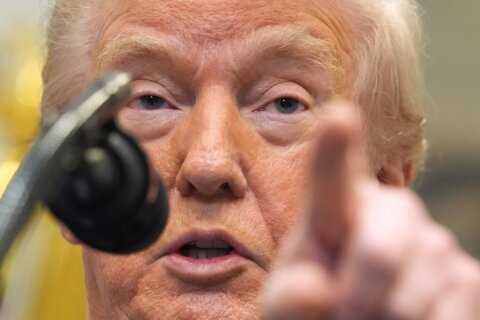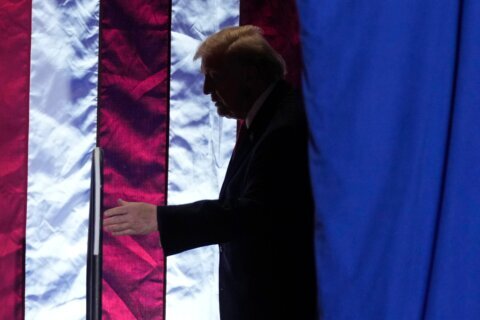WASHINGTON — Homeland Security Secretary Kirstjen Nielsen sought to assure a Senate panel on Wednesday that her agency is doing all it can to protect voting systems against hacking and cyber threats ahead of the midterm elections.
But she acknowledged that China is carrying out widespread efforts to exert influence on Americans as the elections approach.
“China absolutely is exerting unprecedented effort to influence American opinion,” Nielsen said, adding that “we have not seen to date any Chinese attempts to compromise election infrastructure.”
Nielsen clarified comments she made during a Washington Post cybersecurity summit last week, which followed President Trump’s surprising statement before the U.N. Security Council that China had been trying to interfere in the upcoming election.
During Wednesday’s hearing, Sen. Gary Peters, a Democrat from Michigan, referred to the president’s comments at the U.N., asking Nielsen whether there was a potential election threat that “you don’t know about,” but that the president does.
Nielsen also addressed concerns about the potential Russian threat. She was criticized earlier this year by Democrats after she initially declined to acknowledge the assessment of intelligence officials that Moscow was involved in earlier election meddling.
“With weeks to go until the midterms, top of mind for most Americans is the Russian interference in our 2016 elections,” Nielsen said. “This was a direct attack on our democracy. We should not, cannot and will not tolerate such attacks or let them happen again.”
Nielsen, testifying before the Senate Homeland Security and Governmental Affairs Committee, said her agency has worked with the private sector and officials in all 50 states in efforts to make voting systems more secure. She said that’s being done by sharing intelligence and deploying cyber experts to review computer systems.
Maryland has come under scrutiny after the FBI revealed that a software company with ties to a Russian oligarch runs part of the state’s voter registration system.
In September of last year, Virginia elections officials took many of the state’s touch-screen electronic voting machines out of service. The decision was made ahead of last year’s statewide elections after hackers showed those machine models were vulnerable.
Nielsen said that by the time U.S. elections are held next month, “network security sensors will cover 90 percent of registered voters.” The technology allows federal officials to look into state computer systems and help identify activities linked to hacking.
DHS also will host a virtual nationwide “situation room” on Election Day to help respond to any problems, Nielsen said.








